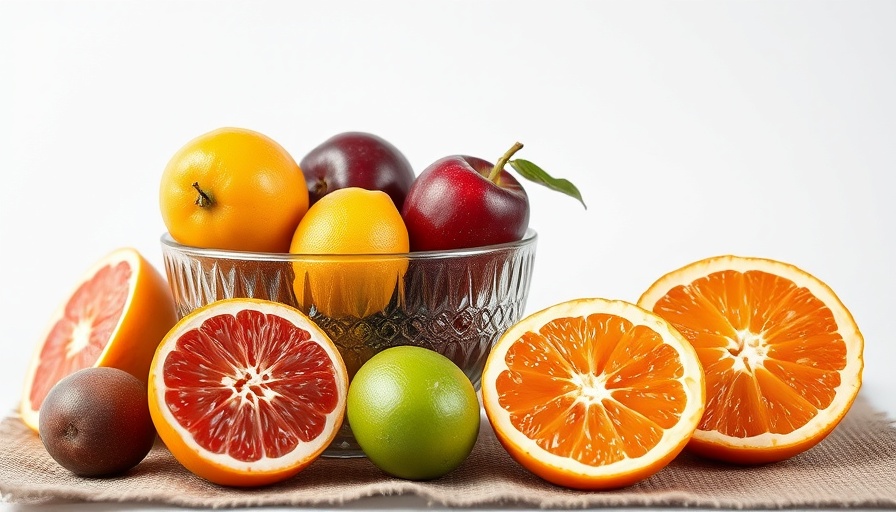
The Hidden Dangers of Grapefruit and Medication Interactions
When it comes to managing health through medication, the focus often lies primarily on the dose and timing of prescriptions. However, nutrition plays a critical role that is often overlooked. Dr. Xand van Tulleken, a British physician renowned for his health-focused media engagements, recently raised alarms about the potential dangers certain foods, particularly grapefruit, pose to those on medication.
Why Grapefruit Might Be Your Medication’s Worst Enemy
During his appearance on BBC's Morning Live, Dr. Tulleken emphasized that grapefruit should be avoided by anyone taking regular medications. This warning particularly extends to individuals on statins, blood pressure medications, psychiatric drugs, immunosuppressants, and heart rhythm medications. Grapefruit contains specific chemicals that can interfere profoundly with medication metabolism, leading to dangerously high levels of drugs in the bloodstream.
According to research highlighted by Harvard Health, the chemical furanocoumarin is believed to be responsible for this interaction. It inhibits an enzyme known as CYP3A4, which is crucial for breaking down many medications. When grapefruit juice or even the fruit itself is consumed, the medication’s absorption can surge, potentially causing harmful effects. Even a mere half glass of grapefruit juice can alter drug processing for days, underscoring the need for careful dietary choices when on medication.
Beyond Grapefruit: The Impact of Vitamin K on Medication
Dr. Tulleken didn't stop at grapefruit; he also highlighted vitamin K, abundant in leafy greens and avocados, as another important factor to consider. While vitamin K is crucial for clotting, it can diminish the efficacy of blood thinners. Thus, individuals on these medications are advised not to shun vitamin K-rich foods entirely but rather to consume them in a balanced manner throughout the week.
The goal isn't to eliminate all vegetables laden with vitamins beneficial for health, but to be informed. Striking a balance in diet helps maintain the effectiveness of necessary medications while promoting overall wellness.
Encouraging Patient Awareness in Concierge Medicine
For those in the concierge medical field, this information is vital. Establishing robust communication with patients includes educating them on potential food interactions with their medication. By adopting a holistic approach that encompasses both medical and nutritional advice, concierge medicine can reinforce its commitment to comprehensive patient care.
When medical practitioners take the time to educate patients about the significance of dietary choices concerning their treatment regimens, they can foster trust and improve adherence to prescriptions. This approach aligns with the ethos of concierge practices, which prioritize in-depth patient relationships and personalized care plans.
Final Thoughts: The Vital Intersection of Food and Medication
Understanding the interplay between diet and medication is a crucial component that can significantly affect patient outcomes. Through advocacy and education, concierge medical practices can elevate the quality of care while keeping patients informed about what they consume in relation to their health. As more data emerges on this critical intersection, it increasingly becomes apparent that effective patient care demands an integrated approach encompassing medication, nutrition, and holistic health education.
 Add Row
Add Row  Add
Add 






Write A Comment